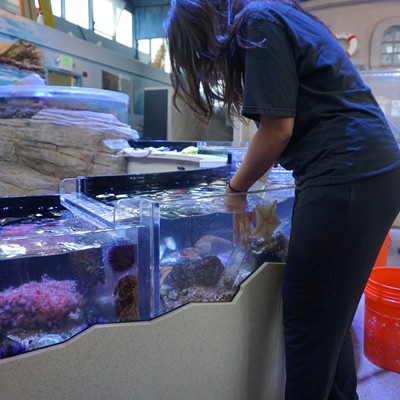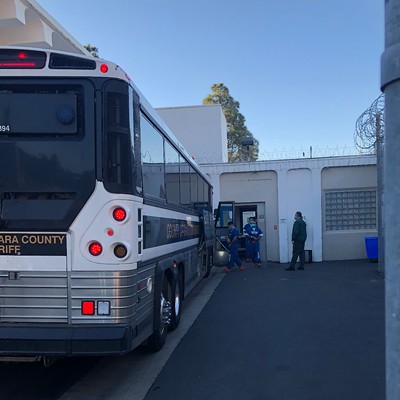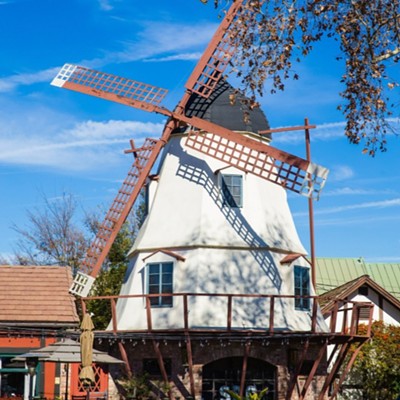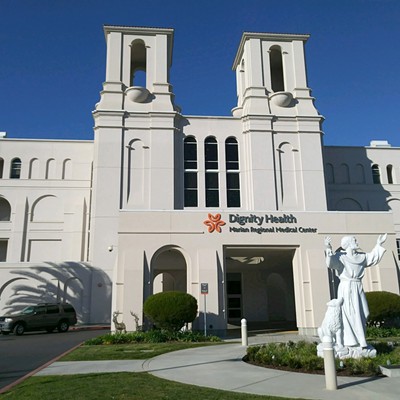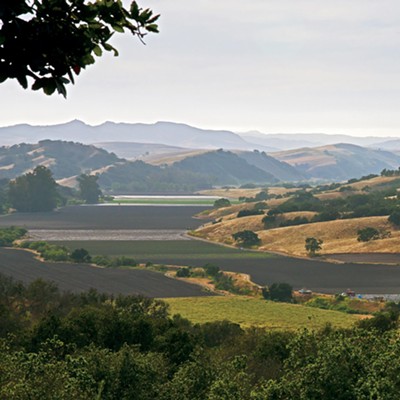California businesses with fleets of heavy, diesel-fueled vehicles will have to begin meeting more stringent environmental protection regulations on July 1, a process that could prove difficult for many—including at least one local business—that already struggle to adhere to the current requirements.
California’s Periodic Smoke Inspection Program became effective in the ’90s and was developed by the California Air Resources Board (CARB), a state-appointed group charged with decreasing air pollution. The Periodic Smoke Inspection Program requires owners of heavy diesel-fueled vehicles to conduct annual smoke opacity inspections of their vehicles and repair those with excessive smoke emissions to ensure compliance.
In short, the program is meant to reduce toxic air pollutants emitted from diesel-fuel vehicles.
CARB randomly audits fleets, keeps maintenance and inspection records, and tests a representative sample of vehicles. All vehicles that don’t pass the test must be repaired and retested, and more stringent amendments that make the limits on smoke opacity tougher are going into effect next month.
At least one local business, Adam Brothers Farming, has already struggled to meet the existing standards required by the Periodic Smoke Inspection Program and similar CARB guidelines for diesel vehicles.
Like many businesses across the state, Adam Brothers failed to meet the state requirements set for businesses that use heavy diesel-fueled vehicles, according to court documents included in a lawsuit CARB filed against the farm company in 2016.
Along with the annual smoke opacity tests, owners of diesel-fueled vehicles weighing more than 26,000 pounds have to meet the state’s truck and bus regulation requirements, standards developed by CARB that are aimed at ensuring that diesel vehicles operating in California are upgraded to reduce diesel emissions as much as possible.
The truck and bus regulation includes specific Best Available Control Technology requirements, which set emission limitations specific to different diesel vehicles.
Adam Brothers allegedly failed to meet Best Available Control Technology requirements in 2014 and 2015, according to the lawsuit, and failed to pass smoke opacity tests from 2011 until 2015.
After a CARB investigation determined there were non-compliant vehicles in the farm’s fleet, those vehicles were cited, the Department of Motor Vehicles (DMV) was instructed to deny registration renewals for those vehicles, and then CARB filed a lawsuit against Adam Brothers Farming in 2016, according to court documents. Adam Brothers disputed the allegations in court for years, claiming that the DMV unlawfully refused to renew Adam Brothers’ vehicle registrations.
A representative of Adam Brothers Farming eventually signed a settlement with CARB and the DMV in the spring of 2018, in which the farming company agreed to slowly begin meeting the requirements for heavier diesel vehicles and pay a $25,000 fine.
The court-ordered fine was paid, according to CARB Information Officer Karen Caesar, and Adam Brothers Farming has been compliant with the terms of the settlement each year since it was made. This year, at least 85 percent of the farm’s heavier diesel vehicles must meet Best Available Control Technology requirements, and all must pass opacity smoke tests.
By Jan. 1 of next year, all the farm’s heavier diesel vehicles must be compliant with the state standards.
Adam Brothers Farming isn’t the first business to struggle meeting California’s requirements for trucks and buses, Caesar said. CARB regularly finds businesses out of compliance with the regulations—roughly 20 percent of those required to be compliant are not—and deals with scores of similar lawsuits yearly.
The Adam Brothers case came to light recently after one of the company’s co-owners, Santa Barbara County 4th District Supervisor Peter Adam, voted against a symbolic resolution to support a federal bill aimed at tackling climate change in early June. His position led to a heated debate and broader concerns over what some environmental activists see as the supervisor’s apathy toward environmental protection—in both politics and business.
The passage of the county’s resolution, which was approved in a 3-2 vote on June 4, followed a public comment period at the supervisors’ May 21 meeting where several speakers called on supervisors to support the Green New Deal, a bill proposed by U.S. legislators in February that calls for the U.S. to rely solely on renewable and zero-emission energy sources within a decade.
Though Santa Barbara County’s resolution of support is no more than a symbolic gesture, the debate surrounding it was contentious. At the May 21 meeting, 3rd District Supervisor Joan Hartmann compared the remorse felt by German students whose parents and grandparents were Nazis to what future generations could feel about their predecessors not taking action to address climate change, an analogy that Supervisor Adam later said was vicious and wrong.
Now community members are raising concerns over Adam’s skepticism toward climate change.
Though Supervisor Adam said he doesn’t comment publicly on his farm, he wrote in an email to the Sun that his political positions are based on his “convictions” that the science surrounding climate change—and what’s really best for the environment—isn’t settled yet.
“If people are inclined to think the worst of me even after listening to my reasoning for my positions,” Adam wrote, “they probably will not be persuaded to see me in a less unfavorable light in any case.”
Staff Writer Kasey Bubnash can be reached at [email protected].


